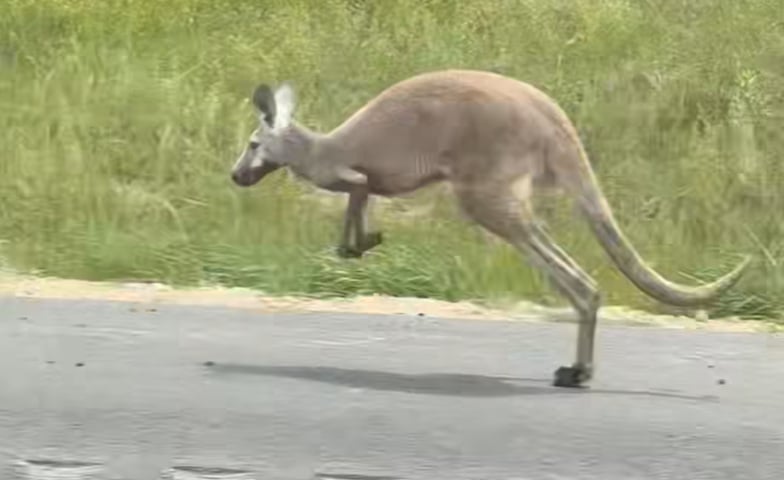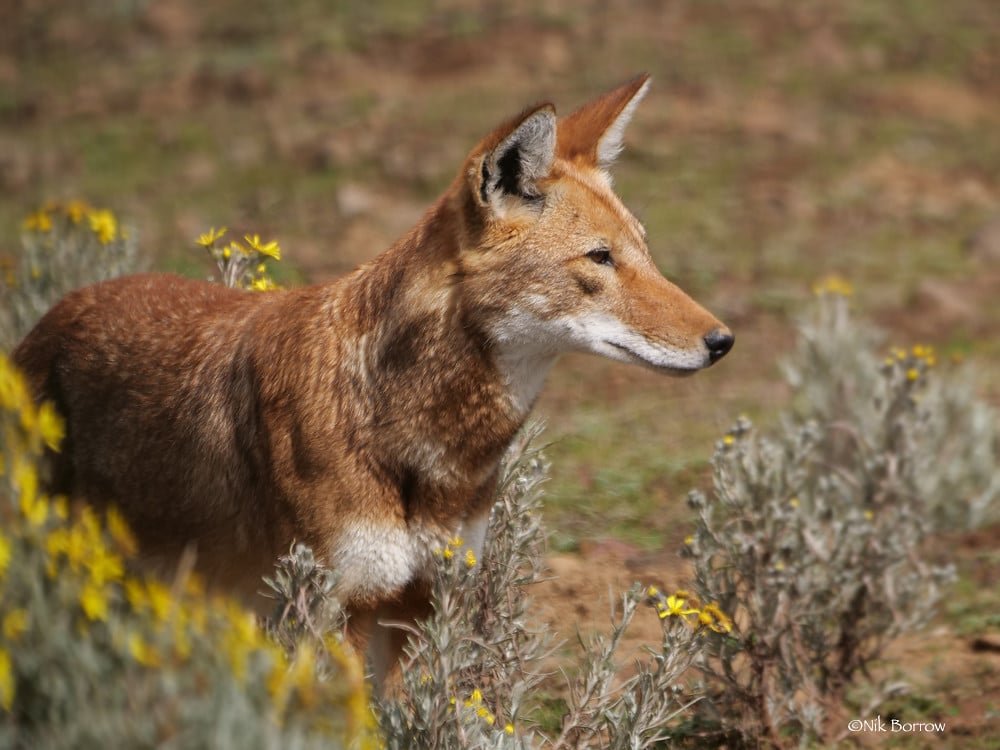Interstate travel in Alabama took an unexpected turn on April 29, 2025, when Sheila, a pet kangaroo decided to go walkabout on I-85. The marsupial’s highway adventure caused more than just double-takes from passing motorists — it led to a two-vehicle crash, a full highway shutdown, and renewed questions about exotic pet laws in the state.
Around 11:50 a.m. on that Tuesday morning, Sheila escaped her enclosure near a pumpkin patch and petting zoo in Macon County. The female macropod made her way to Interstate 85 between Montgomery and Auburn, where her unexpected appearance caused immediate chaos on the roadway.
Two vehicles collided while trying to avoid the bounding marsupial, though thankfully no human injuries were reported. Alabama Law Enforcement Agency troopers quickly shut down both northbound and southbound lanes for motorist safety while they worked with the owner to capture the wayward animal.
Macon County Sheriff André Brunson captured the disbelief felt by many in a Facebook Live video: “When somebody said there was a kangaroo…nobody believed it. But I’m looking at him.”
Catching a startled kangaroo is no simple task. These animals can reach speeds of 40 mph and jump over 25 feet in a single bound. In Sheila’s case, authorities and her owner, Patrick Starr, used a tranquilizer dart to safely immobilize her on a nearby embankment.
After being darted, Sheila was transported to Auburn University’s College of Veterinary Medicine for evaluation. The university’s Large and Small Animal Teaching Hospitals provide around-the-clock emergency services, with staff trained to handle exotic animals like kangaroos.
By early afternoon, Starr reported that Sheila was “back home safe…She’s not sedated anymore. She’s eating. She’s drinking. She’s not injured.”
This incident raises questions about Alabama’s exotic pet laws. Under Alabama Code Title 9, § 9-2-13, the Commissioner of Conservation and Natural Resources can prohibit importing or releasing non-native mammals except with a valid permit. Violators face Class C misdemeanor charges with fines between $1,000 and $5,000 or up to 30 days in jail.
The state’s Regulation 220-2-.26 further bans releasing non-indigenous mammals without permits issued before January 13, 2021. Permit holders must allow on-site inspections, with non-compliance potentially leading to abatement actions or permit revocation.
Similar Posts
Beyond traffic safety, incidents like Sheila’s highlight public health considerations. The CDC warns that imported wildlife can harbor pathogens such as Salmonella, Ebola, and monkeypox that pose significant health threats. U.S. import surveillance covers only birds, primates, and some ungulates, leaving many exotic animals “only screened for physical signs of disease.” For exotic pet owners, the CDC recommends thorough hand washing after handling animals and seeking veterinary care from professionals with exotic animal expertise.
Perhaps most concerning is that this isn’t an isolated incident. According to Humane World for Animals, Sheila’s highway adventure marks Alabama’s third kangaroo escape in just four years. This pattern raises serious questions about enclosure adequacy, stress behaviors in captive marsupials, and the need for higher husbandry standards.
Animal welfare specialists recommend stricter enclosure designs (with appropriate fence heights for jumping animals), mandatory site inspections by wildlife veterinarians, and better owner education on species-specific care.
The incident reflects broader market trends in exotic pet ownership. According to the American Pet Products Association, 94 million U.S. households own pets in 2025, including 6 million reptiles and 6 million small mammals. The exotic pet market in North America reached $1.30 billion in 2023, with projected growth of 7.9% annually through 2030.
This isn’t just about kangaroos. The industry has seen other highway disruptions from escaped exotic pets, including an emu on I-75 in Georgia (2019) and llamas on a Colorado interstate (2022).

As our fascination with exotic companions grows, so must the rigor of our laws and the depth of our commitment to proper care. Sheila’s interstate adventure ended safely this time, but it serves as a strong reminder of the responsibilities that come with exotic pet ownership.
For Macon County residents who witnessed the unusual scene of a kangaroo hopping down I-85, it’s a day they won’t soon forget. For the rest of us, it’s a chance to reconsider how we balance our desire for the exotic with the practical realities of caring for animals far removed from their natural habitats.


















